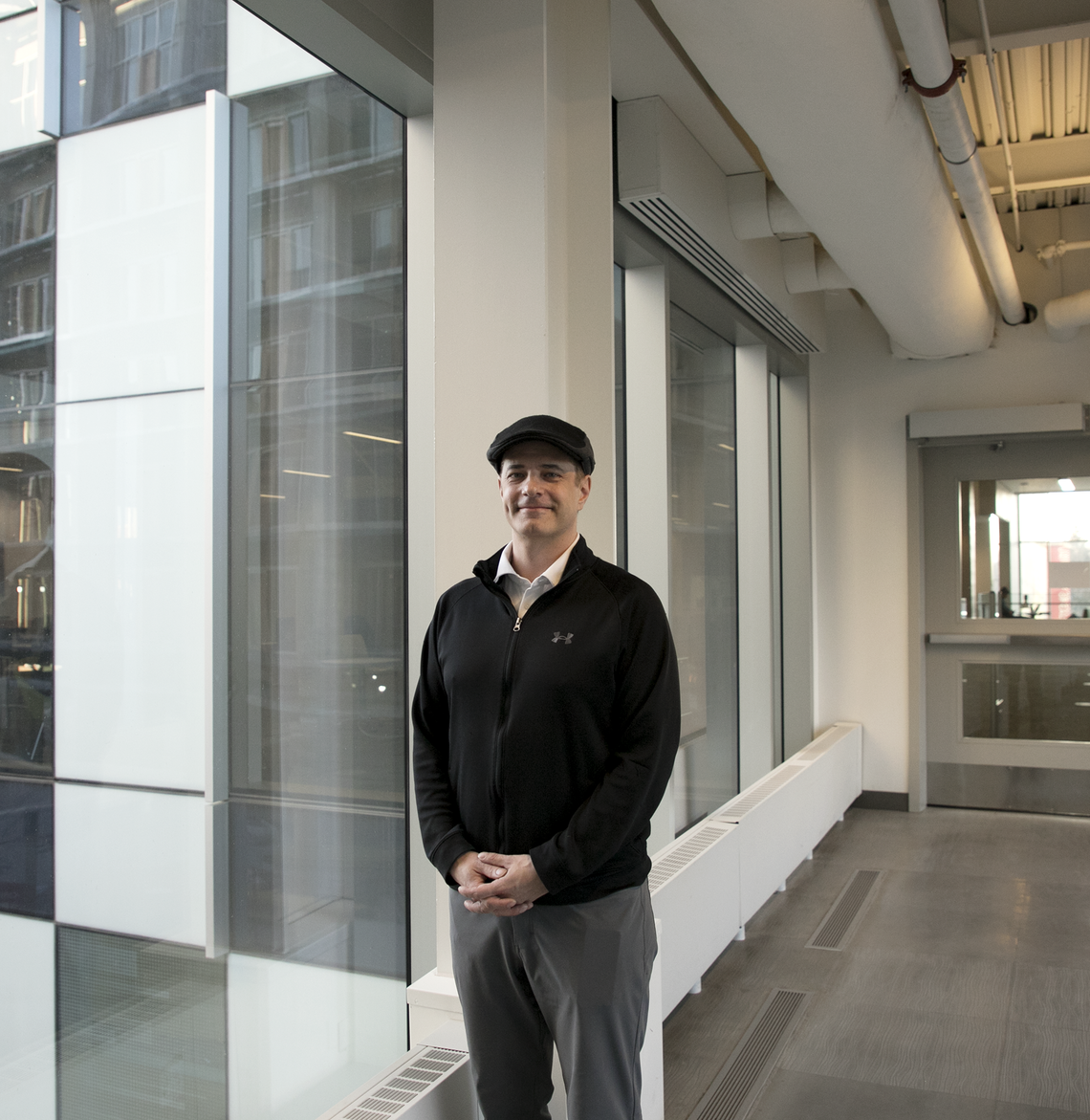Jan. 29, 2019
We're living in the Time of Opioids

University of Calgary student Donny Serink is one panelist at Living in the Time of Opioids.
Kailey Lewis, Student and Enrolment Services
There is no typical opioid user. Stigma surrounding drug use and addiction prevents many people struggling with substance use from talking about their experiences — and even from seeking help.
A common misconception about opioid use and addiction is that is it something that happens “over there” and not in our community. Donny Serink is a current student in the Faculty of Social Work and works as an addictions counsellor at the Alberta Adolescent Recovery Centre (AARC). He says this misconception leads to people becoming dismissive of the issue.
“You can’t identify who is and who is not an addict,” says Serink. “The idea that it’s someone you see on the street downtown is just not true.
“I always challenge people to think about neighbours, family, cousins, uncles. Usually they know someone who has struggled with drugs or alcohol.”
A panel event: Living in the Time of Opioids
Serink is one panelist at the first in a series of opioid awareness events coming to UCalgary over the next two years. The event, Living in the Time of Opioids, will be a discussion about the myths and realities of opioid use, focusing on the lived experience of people on the front lines of the opioid crisis.
Brendan Webster, occupational health nurse with Staff Wellness, says he is excited to participate in the event and feels attendees will leave with a better understanding of how to help reduce the harm and loss related to opioids.
“I think it’s important to remember that we are all affected by the opioid crisis, whether it be directly or indirectly,” says Webster.
Want to learn more about the opioid crisis, and how you can make a difference?
Panelists include
- Dr. Stephanie L. Borgland, PhD, associate professor, Hotchkiss Brain Institute
- Trevor Loria, president and CEO, Simon House Recovery Centre
- Donny Serink, clinical counsellor, Alberta Adolescent Recovery Centre
- Sam Stordy, lived experience speaker.
The panel is moderated by Elizabeth Withey, journalist, CBC Calgary Eyeopener.
Opioids impact us all
If you have ever used long-term pain medication, tried a party drug, or used any illegal substance, there is a chance that opioids could harm you, says Debbie Bruckner, senior director, Student Wellness, Access and Support.
“We often think we are not at risk,” she says. “Yet there are people who have died who did not believe they had any risk. One does not have to be an addict to suffer an opioid overdose. These are people who overdose after trying to manage chronic pain or after using a street or party drug for the first time.
“We need to be aware and know how to save lives.”
Serink hopes attendees of the event come away with the knowledge that addiction is a brain disease and understand how important human connection is to support one’s recovery. He facilitates Refuge Recovery, a weekly program of recovery based on Buddhist principles for people overcoming all forms of addiction.
“Talking about addiction from an academic or theoretical perspective is important, but sitting across from someone and caring about them and trying to help them is the best thing you can do for someone who’s struggling,” he says. Refuge Recovery takes places Wednesdays from 2 to 3 p.m. in the Large Prayer Room (MSC 317a).
